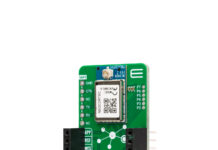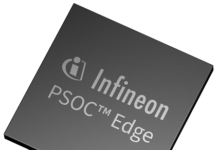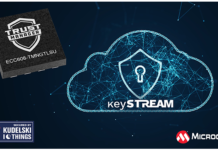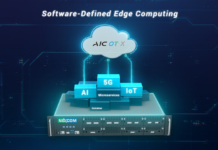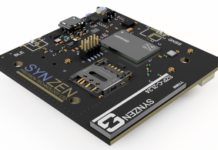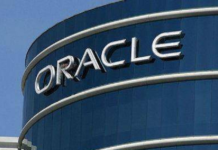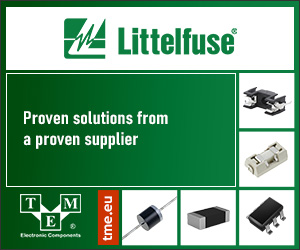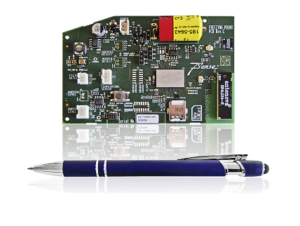
Nordic Semiconductor today announces that ‘slushie’-reinvigorating U.S. frozen drinks company Freezing Point (parent company to slushie consumer brand “Frazil”) is partnering with Norwegian engineering developers, 7Sense, in the development of a low-cost, retrofittable cellular NB-IoT circuit board. The circuit board will allow all of Frazil’s in-store slushie dispensed frozen beverage machines to be continuously monitored to maintain optimal in-store performance and operational margins.
What’s more, Frazil has found that this monitoring will provide a ‘gold mine’ of data for its retail customers whereby if an in-store slushie machine isn’t being maintained (e.g. filters cleaned regularly) and operated optimally (machine on, working, and full – to make it attractive to customers), it invariably indicates that the rest of a store-and the mindset of its local in-store management and staff-is falling behind in other operational excellence standards as well.
“One of the fascinating insights we’ve discovered in launching this solution with retail chains across the U.S. is that large chains are using our real-time slushie/Frazil reporting dashboard as a window into their broader store operations,” comments Kyle Freebairn, CEO of Frazil. “World-class retailers recognize that operational excellence and the in-store experience is one of the key pillars required to win in today’s retail environment. Retailers have identified that there is a strong correlation between how well they manage (or don’t manage) their Frazil program, and how well they manage (or don’t manage) other aspects of retail excellence. The management teams and category managers couldn’t be more excited at the operational visibility this type of offering provides.”
Freebairn continues: “The Frazil team recognized that one of the key reasons the 50-year old slushie industry was suffering from sluggish growth wasn’t that consumers had lost interest in frozen drinks: but that the appearance of machines and freshness of the slushie on offer often left a lot to be desired.
“In addition, the hassle and cost of having to buy and maintain a machine was a real hassle for retailers too. So, slushies had lost their appeal to consumers and retailers, and we had to completely change that. And what we came up with was our ‘slushie-as-a-service’ modified subscription business model [see below] that really enables retailers to hit the ‘easy button’ when it comes to slushies. All a retailer has to do is simply buy cases of product from their partnering distributor, and other than very minimal routine cleaning, we do all the maintenance, servicing, and monitoring.
“We invested in developing a range of new flavors that employed higher quality ingredients than traditional slushies. We don’t sweeten with high-fructose corn syrup, but real, natural sugar. Our gamble was that a quality product would drive category growth. And what we found is that consumers hadn’t fallen out of favor with fresh, ice-cold, delicious slushies, they’d fallen out of favor with a poor customer experience that didn’t focus on delighting the consumer. That’s what we focused on fixing and that’s why our sales are now growing at a rate 10x greater than the industry-average. And now with the cellular IoT enhancement, our customers won’t even have to phone us for most issues; if they have a problem, we’ll know before they do.
“What’s more our initial trials have demonstrated that the costs of moving to a cellular IoT solution are more than offset by the increase in revenue and profits that comes from significantly cutting down on downtime by being far more proactive at spotting and quickly solving potential issues.”
7Sense is a Norwegian outsourcer that develops IoT technology such as production, storage, and monitoring solutions for a wide range of industrial, military, agricultural, oil and gas, maritime, and telco clients that lack a general or specific technological expertise in-house. 7Sense has also been at the forefront of the rollout of NB-IoT in Norway and has recently established a development partnership with both of Norway’s largest carriers, Telia and Telenor, for their customers who want to use LTE-M and/or NB-IoT.
“We’ve been developing cellular IoT-type applications using traditional cellular modules for some time,” comments 7Sense CEO, Max Tangen. “But when the Nordic nRF9160 SiP module came along we would see it had a host of clear and unique benefits over anything else that’s been, or is, available. In fact, I would say the Nordic nRF9160 SiP was one of the key reasons we won the Frazil development contract.”
Tangen adds: “The reason we used LTE-M in the Frazil application is because one of the challenges in this application has been in-store reception. If you go into some stores, they’re like caves or have lots of metal on floors, walls, and ceilings, which all serve to create a hostile wireless operating environment.
“To ensure we could get a cellular signal through to all Frazil machines in all stores in which they are employed, we found LTE-M gave us much higher consistency than GSM, with far fewer dead spots.”



